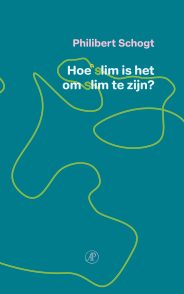
Thanks to our superior intelligence, we humans have become the most powerful beings on earth. But this evolutionary success story has a dark side. In seven fascinating and smoothly written essays, Philibert Schogt examines this issue in detail. How our intelligence can lead to cynicism or snobbery, or to an unhealthy degree of empathy. About the increased complexity of our society, which fewer and fewer people understand. About artificial intelligence as a possible new Frankenstein monster.
‘Does intelligence always lead to good outcomes? Or would scientists and AI developers do well to keep some insights to themselves? A personal and socially involved essay collection about the downside of smartness.’ Filosofie Magazine
‘How valuable is our intelligence actually? In How Smart Is It to Be Smart, Philibert Schogt tries to find an answer to that question using seven essays. With sharp observations, he shows that intelligence is not always an advantage – and can sometimes even get in the way. Using anecdotes, Schogt takes the reader on his quest for the benefits of intelligence . All sorts of themes are discussed: from what it is like to grow up as a smart child to an extensive report of a visit to a mushroom stall… Schogt’s observations and recognizable stories make the book a fascinating and entertaining whole.’ New Scientist NL
Sales
- Arbeiderspers NL (March 2025)